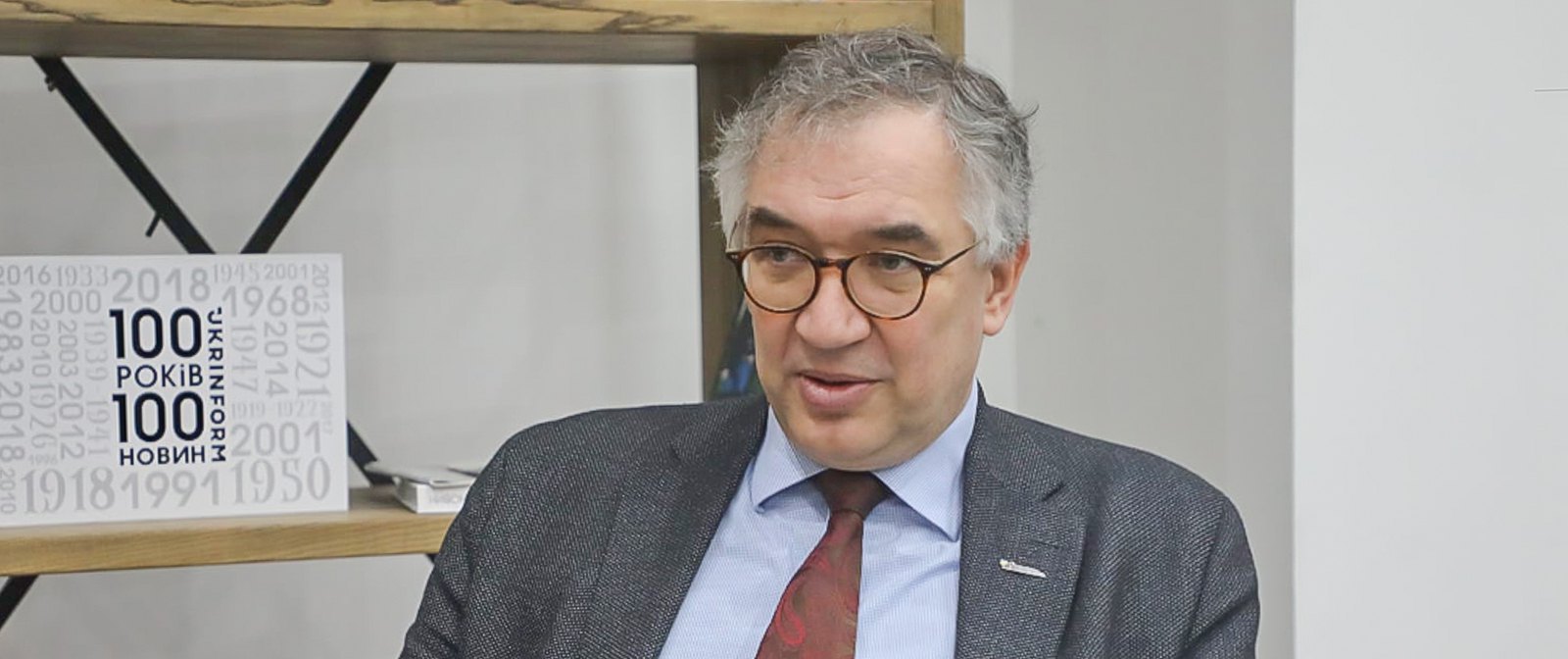Roman Vashchuk, business ombudsman
1. How do you envision Ukraine's post-war recovery? Where should the main efforts be directed?
Recovery has already begun, which is evident in places that have been de-occupied. Is it spontaneous or planned? Of course, it is planned. This process will take years, and it is impossible to predict it now. I am glad that this ecosystem was presented at the conference in London for both Ukrainians in the authorities and local self-government, as well as for project participants, and donors. This will be a coordinated effort not just for formal five years, but a plan that will evolve during implementation, and there should be certain directions.
It is interesting how the choice of words affects the way we perceive what we have to do. Is it recovery, restoration, recreation of what it was, reconstruction, or renewal? I am a supporter of renewal. I understand that in some cities, it is necessary to restore certain iconic buildings that formed their image. But we should not recreate the Soviet infrastructure. In the end, we should probably accept that the demographic balance of Ukraine will no longer be the same as before the full-scale invasion; some people who moved have already chosen new places of residence; certain cities will grow, while others will not. And it would be foolish to simply restore everything mechanically to fulfil some plan for a very short-term goal.
2. Which industries should drive the Ukrainian economy after the war?
Planned economy has not had particularly good results in our region. But it seems to me that the renewal of infrastructure and other forms of livelihoods should be a priority. And this is not something that the private sector will do, this is something that requires Ukrainian government grants, as well as money from international donors. They create a framework for both the population and businesses to decide what they can build.
The state should invest in the sectors that can yield back relatively quickly. For example, this could be land reclamation in the south, but again, not only does the Kakhovka reservir need to be filled, but there may already be newer, cheaper, more environmentally friendly solutions for land reclamation, navigation, and drinking water supply. And this can be organised in a different way than Stalin did in 1952.
3. What are the main challenges in the post-war development of Ukraine?
We need infrastructure, not only physical but also legal. What do we see as a significant challenge and problem even now in Kherson and Kharkiv regions, in the territories that were deoccupied last autumn? There are Ukrainian laws that require certain things from businesses. Orders or even legislation have been passed that provide certain benefits, but they are not synchronised. That is, the state should not only actively facilitate, but also stop doing counterproductive things that hinder business, which is already investing all its efforts in survival.
After restoring the physical infrastructure that is needed for business to grow, orderly legal relations come second or close behind. If they are not there, people will either not want to invest, or if they do, they will realise that they are in a legal trap. This will become known both in Ukraine and abroad – and it will harm the cause of renewal.
4. What should be the role of the state and the private sector on this path?
Large-scale renewal and rebuilding of the agricultural or energy sectors, green steel – the private sector will not be able to do it all, but it can contribute. I was at some of the sectoral sessions of the [URC-2023] conference and saw that, as the slides were shown, half the people in the room were raising their hands to take pictures on their phones. Even if every industry is not perfectly covered, providing conference participants with specific examples gives an idea what to invest in. When presenting the possibilities of rebuilding Ukraine's power system, for example, it was noted that there is a great need for modern transformers, with examples of transformer plants in Kharkiv and Zaporizhzhya or related plants that could be partners in this. Future projects may not be exactly the same, but at least a practical example has been provided. The government, the state, should create both physical and legal infrastructure, and possibly submit ideas on industrial policy. It would be unreasonable to demand that only steel mills can be built in Zaporizhzhya.
Eventually, the private sector will understand what and where it is best to build. But if we create the preconditions and give examples of what can be built on, where Ukraine's production capabilities are, this will give grounds for taking the next steps.
Does anyone think that the state will rebuild the steel industry? There are no resources for that. Someone from Ukraine or abroad will rebuild the industry privately. With all due respect to the enormous sacrifices of Mariupol, no-one will build Azovstal as it was in 1928. There may be other steel or metalworking plants in Ukraine, but they will be highly automated: instead of 20,000-30,000 employees, they will employ a thousand or five hundred. We have to prepare for the fact that we are leaping 20-30-40 years ahead. We should be thinking in terms of the current and future economy. Will the government always be able to do this? It is a question. We'll see what the changes announced by Ukroboronprom will bring, but we know that the private sector produces half, if not more, of domestic weapons. I think that the renewal of Ukraine will begin with the partnership and symbiosis between the private and public sectors. But I do not expect the state-managed construction of mega-factories.









